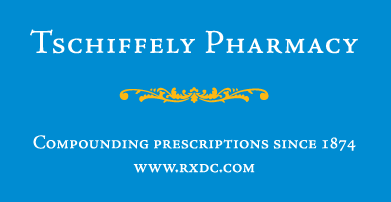
To Buy Strattera Online Visit Our Pharmacy ↓

Overview of Adhd and Medication Treatment Options
ADHD is a neurodevelopmental disorder that affects individuals of all ages, characterized by inattention, hyperactivity, and impulsivity. Medication treatment options for ADHD typically include stimulant and non-stimulant medications, each with their own mechanism of action and efficacy profiles. Stimulant medications like Adderall work by increasing the levels of dopamine and norepinephrine in the brain, helping to improve focus and impulse control. On the other hand, non-stimulant medications like Strattera target different neurotransmitters to achieve similar benefits without the risk of abuse or dependence.
| Medication Type | Mechanism of Action | Efficacy | Side Effects | |-----------------|----------------------|----------|--------------| | Strattera (Non-stimulant) | Targets norepinephrine reuptake to improve focus and reduce impulsivity | Effective for some individuals with ADHD | May cause nausea, fatigue, and mood swings | | Adderall (Stimulant) | Increases levels of dopamine and norepinephrine in the brain for improved focus and impulse control | Effective for most individuals with ADHD | May cause insomnia, decreased appetite, and increased heart rate |
Understanding the Mechanism of Action for Each Drug

Strattera and Adderall operate through distinct mechanisms within the body, influencing neurotransmitters in the brain to manage ADHD symptoms effectively. Strattera, a non-stimulant medication, primarily targets norepinephrine transporters in the prefrontal cortex, enhancing cognitive function and impulse control. On the other hand, Adderall, a stimulant, combines amphetamine and dextroamphetamine to boost dopamine and norepinephrine levels, improving attention and focus. Understanding these differential actions can aid in selecting the most suitable treatment approach for individuals with ADHD.
Efficacy and Side Effects Comparison
When comparing Strattera and Adderall, it's essential to consider their efficacy and side effects. Strattera, a non-stimulant medication, is known for having a lower risk of abuse compared to Adderall, which is a stimulant drug commonly prescribed for ADHD. While Adderall may provide more immediate symptom relief, it also comes with a higher likelihood of side effects such as insomnia, decreased appetite, and potential cardiovascular issues. On the other hand, Strattera may take longer to show its full effects but is generally well-tolerated, with side effects typically milder in comparison. Understanding the differences in efficacy and side effects can help individuals make informed decisions when choosing between these two ADHD medications.
Considerations for Choosing between Strattera and Adderall

When deciding between Strattera and Adderall for ADHD treatment, there are several factors to consider. Each medication has its own unique benefits and side effects, so it's important to weigh these carefully. Consider your individual response to similar medications in the past, as this can help predict how you may react to Strattera or Adderall. Additionally, think about your lifestyle and daily routine, as the dosing frequency and duration of action differ between the two drugs. Consulting with your healthcare provider is crucial to ensure that the chosen medication aligns with your specific needs and health conditions.
Practical Tips for Managing Medication Effects
Practical Tips for Managing Medication Effects:
For individuals taking Strattera or Adderall, managing medication effects is crucial for overall well-being and treatment success. Here are some practical tips to help navigate potential side effects and optimize medication outcomes:
- Stay Hydrated: Drinking an adequate amount of water throughout the day can help alleviate common side effects such as dry mouth and headaches.
- Maintain a Consistent Routine: Establishing a daily routine that includes taking medication at the same time each day can help manage potential fluctuations in effectiveness and minimize disruptions to daily activities.
- Communicate with Your Healthcare Provider: It is essential to maintain open communication with your healthcare provider to discuss any concerns or changes in symptoms. Regular monitoring and adjustments to medication dosage or timing may be necessary for optimal results.
| Tips | Description |
|---|---|
| Stay Hydrated | Drink water to alleviate side effects like dry mouth. |
| Maintain Routine | Establish daily medication schedule for consistency. |
| Communicate | Openly discuss concerns with healthcare provider for optimal results. |
Conclusion: Finding the Best Medication for Adhd
Finding the best medication for ADHD involves careful consideration of various factors such as individual response, tolerance to side effects, and long-term management goals. It's essential to work closely with healthcare providers to monitor progress and adjust treatment as needed. Additionally, staying informed about the latest research and developments in ADHD medications can aid in making informed decisions about the most suitable option for each unique situation. To learn more about Strattera and its efficacy in treating ADHD, visit scientificsource1.com. For a deeper understanding of the mechanisms behind ADHD medication like Strattera, consultation with medical professionals and reputable sources such as scientificsource2.com can provide valuable insights.